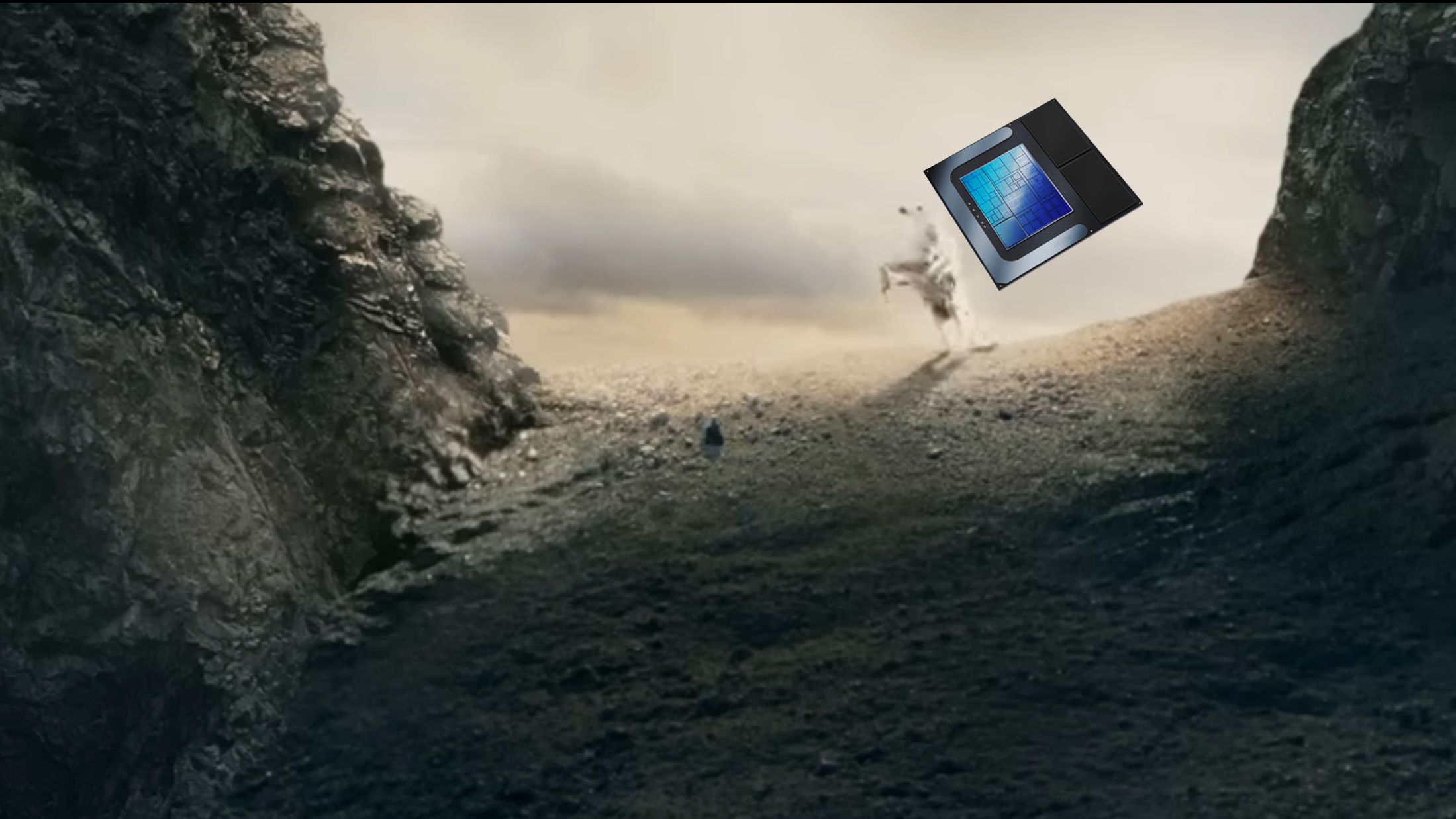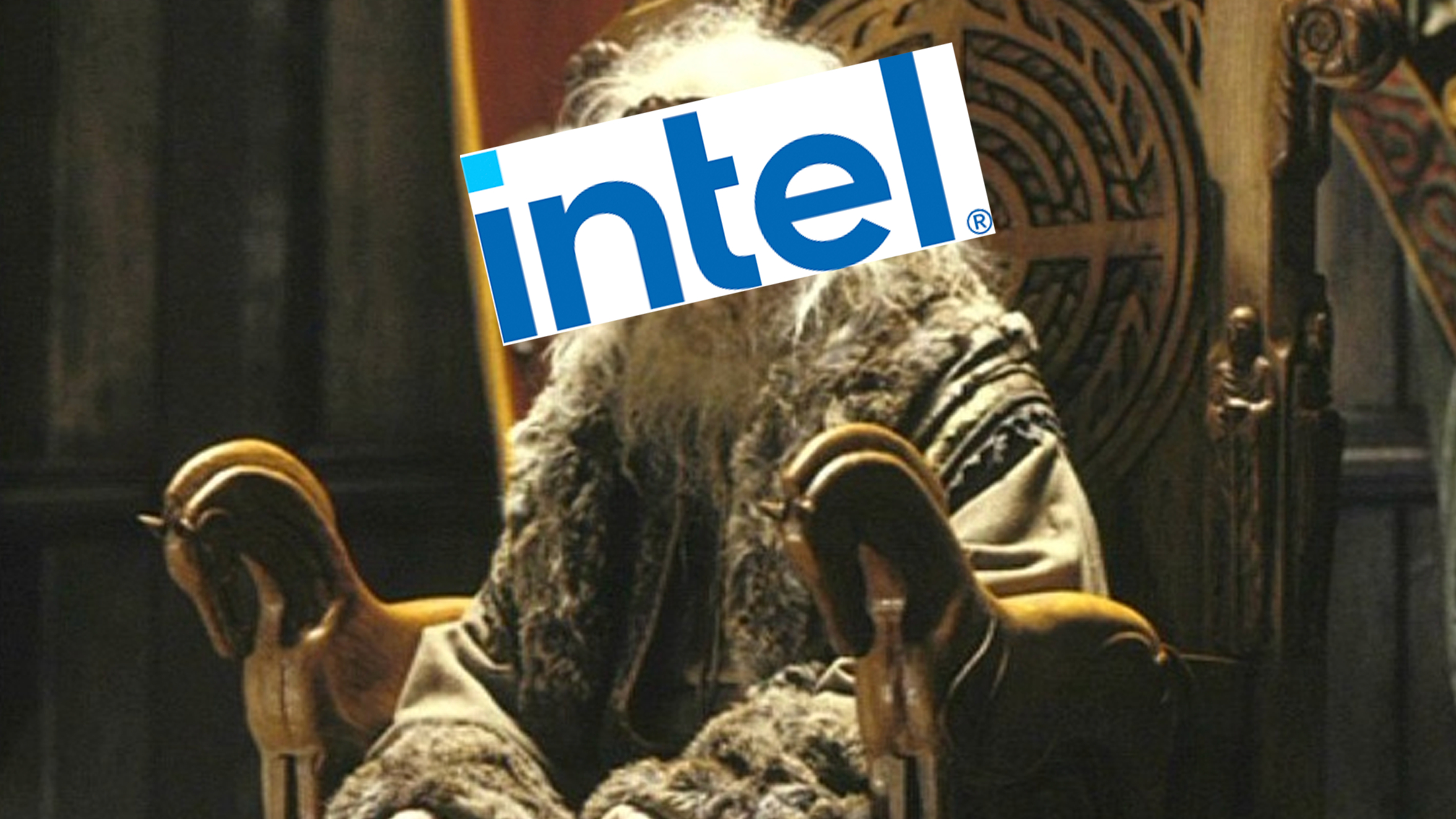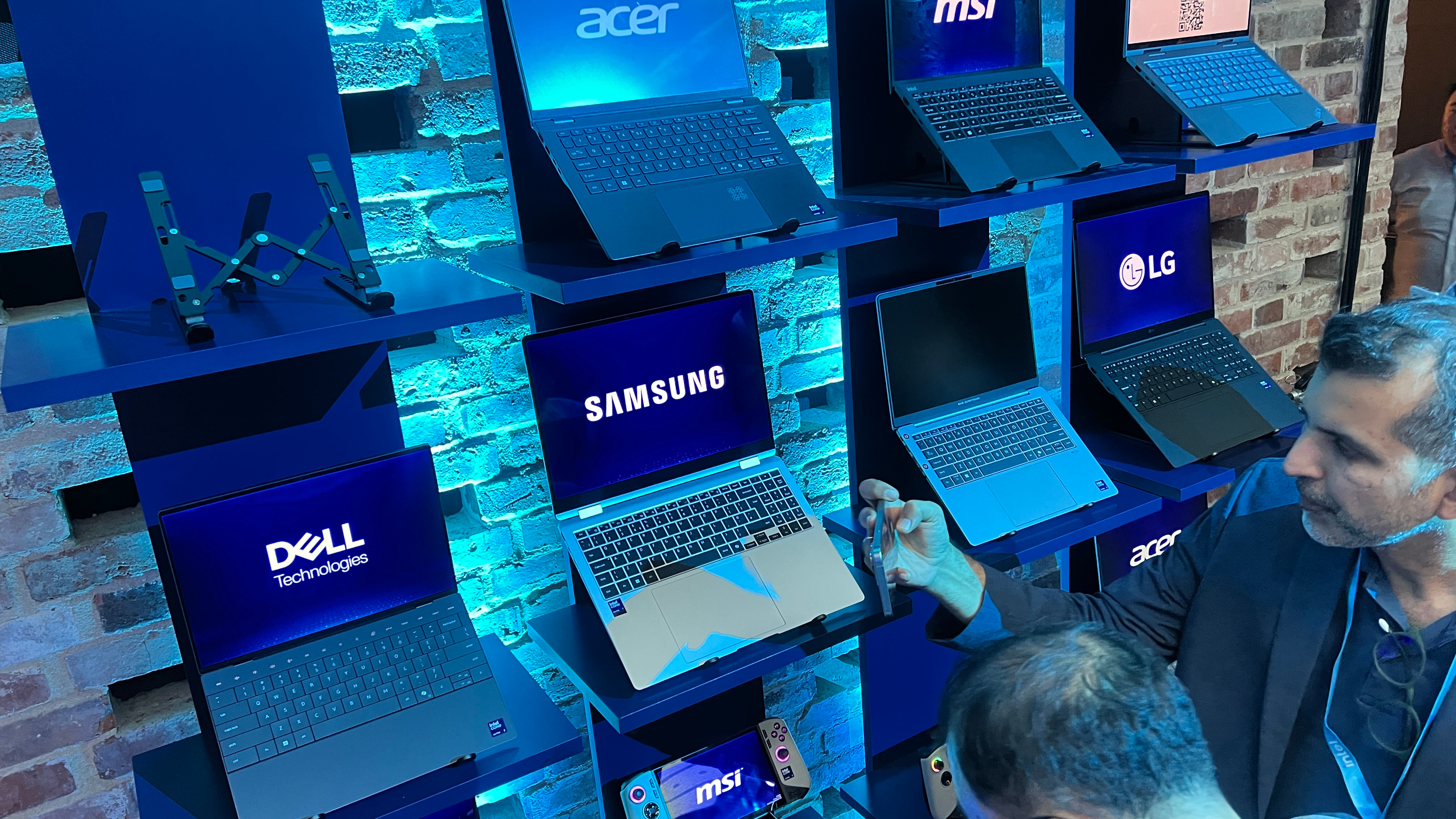Lunar Lake is coming to save Intel like Gandalf at Helm's Deep
On the dawn of September 24, look to the East, Intel

Sign up for breaking news, reviews, opinion, top tech deals, and more.
You are now subscribed
Your newsletter sign-up was successful
For a lot of reasons, the idea that Intel is about to go under or be cannibalized by AMD, Nvidia, or Qualcomm isn't realistic.
First among them being that as the US's only domestic chip fabricator, the US government cannot afford its failure, both economically and militarily, so it would nationalize Intel long before it would ever let it go under. So put the demise of Intel out of your head.
As for it being bought up by Qualcomm or someone else, no regulator in the world would allow that kind of consolidation in such an economically critical industry, just like Nvidia wasn't allowed to purchase Arm in the end. Intel might have to give up certain market segments to focus on others, but that's the way it's always been and isn't the death knell some are making it out to be.
But at IFA 2024, there's also a much more compelling reason why Intel's outlook isn't as bleak as market and tech pessimists predict, and it's simply that Intel Lunar Lake is about to hit the market in less than a month, and it looks like the most impressive consumer processor I've ever seen in a laptop, which is arguably the most important edge computing device on the market. Yes, better than Arm and AMD, and yes, better than Apple, and it will certainly put Intel firmly back at the top.
Intel has definitely been struggling

Now it's understandable that a lot of people are concerned (or giddy, if they're a hater) about Intel's current position. It has definitely not had a great couple of months, especially when it's laying off tens of thousands of workers in a cost-cutting measure.
On the technical side, Intel Raptor Lake Refresh and Intel Meteor Lake have been pretty underwhelming. They aren't bad processors, but they aren't so good as to convince customers to upgrade their laptops.
The biggest worry for Intel this year is that Qualcomm released a new Snapdragon X series of laptop processors that nearly doubles the battery life of an Intel Meteor Lake laptop while giving 'good enough' performance through x86 emulation to eliminate the biggst impediment to Windows on Arm, which is app compatibility.
Sign up for breaking news, reviews, opinion, top tech deals, and more.
Meanwhile, on the client desktop side, AMD Ryzen chips are simply the better enthusiast CPUs right now, generally speaking, and so intel has been steadily losing market share on yet another front.
Finally, probably the biggest issue affecting Intel's bottom line right now is that it has lost substantial ground in data center market share to Nvidia in the past few years. This trend is likely to be irreversible, at least in the short term, and so to some degree, Intel won't be the company it once was.
Intel Lunar Lake will cement Team Blue as the only mobile processor worth buying

When it comes to the consumer market though, there was a bit of a scare for Intel about Qualcomm's new Snapdragon X processors, which are genuinely impressive and makes the best Windows laptops running on these SoCs truly competitive in the general marketplace against the MacBook Air thanks to their outstanding battery life.
These devices, like the Microsoft Surface Laptop 7, Microsoft Surface Pro 11, and Dell XPS 13, are all among the best laptops on the market and truly put Apple on the defensive for the first time in years.
To that, I'd say that Qualcomm had a good jaunt in the spotlight, but that's all about to get upended once again now that Lunar Lake laptops are going on sale September 24.
Everything I've seen about Lunar Lake at IFA 2024 has been undeniably impressive, and unlike Apple, Intel has provided plenty of Intel data to show the performance gains achieved over Meteor Lake and better performance over rival AMD and Qualcomm chips.
Granted, we'll need to test these out ourselves to be certain, so watch this space, but you cannot assemble a hoard of tech journos in a sweltering conference room in Berlin to present fairly conservative figures showing 10-15% better performance than your competitors across two dozen workloads only to have pulling those numbers out of your ass.
And the time I've spent looking at these laptops at IFA 2024 definitely reflect this kind of performance, so even if I get different numbers than Intel has claimed, it likely won't be so far off the mark that Intel would have been straight-up lying to us. Especially on the graphics side, there is something remarkable about seeing Cyberpunk 2077 hitting 60 FPS on medium settings from an ultrabook with an integrated GPU.
What's more, there hasn't been a single laptop maker I've spoken to or heard from that has quoted less than 20 hours of battery life when playing local video, with one even going so far as to claim 26 hours of battery life from the Intel Core Ultra 7.
These numbers completely negate the main advantage of Qualcomm's latest chips, and completely outclass AMD's best laptop CPUs. It looks set to even outperform the Apple M4 on battery life, all while maintaining its advantage as the best performing CPU for x86 applications, which include just about all of them outside of the Apple-exclusive ecosystem.
Arm, meanwhile, still can't run most of the best PC apps natively, instead needing to rely on emulation to get the job done. This emulation can be hit or miss, and you'll never really quite know which app will run and which won't. This isn't a problem for Lunar Lake, since all of these apps are designed to run on x86 from the jump, which means they will all be compatible with Lunar Lake.
Intel Lunar Lake's timing couldn't be better for Team Blue, or worse for Qualcomm

The biggest problem for Intel in all of this would have been if Qualcomm had enough time on the market to gain some buy-in from consumers, which would have incentivized app developers to make Arm-native versions of their apps to serve a large market segment.
But with Lunar Lake laptops launching on September 24, not enough time has passed for Qualcomm Snapdragon X laptops to really gain traction, so as people start looking for laptop deals during the holiday season, chances are they'll end up buying many more Lunar Lake devices than Qualcomm ones, blunting that momentum and making it less likely that app developers will build native Arm apps, especially if Arm chips can use emulation to run the apps they're building for x86 (albeit with some degree of performance degradation from the additional overhead).
As such, Intel will always have the performance and graphcis advantage over Qualcomm, and without the benefit of superior battery life, there will be very little to recommend Qualcomm over Intel.
Simply put, Lunar Lake is arriving just in time to shore up the one area where Intel cannot afford to lose market share. As AMD moves towards parity on desktops and Nvidia runs away with Intel's data center customers, Intel's last redoubt will be the largest consumer market for computers going right now: laptops.
Laptops really are Intel's Helm's Deep, the battle it cannot afford to lose or it will have lost everything. Fortunately, Intel has only two weeks to go before the dawn, after which the real work of turning things around will begin.
You might also like...
- LG Gram 16 Pro is revealed at IFA 2024 with an Intel Lunar Lake CPU that should breeze through AI tasks
- Intel has reportedly canceled Beast Lake and its follow-up – and I’m gutted it’s killed off my dream gaming CPU
- No, Qualcomm is not buying Intel: debunking this week’s most ridiculous computing headline

John (He/Him) is the Components Editor here at TechRadar and he is also a programmer, gamer, activist, and Brooklyn College alum currently living in Brooklyn, NY.
Named by the CTA as a CES 2020 Media Trailblazer for his science and technology reporting, John specializes in all areas of computer science, including industry news, hardware reviews, PC gaming, as well as general science writing and the social impact of the tech industry.
You can find him online on Bluesky @johnloeffler.bsky.social